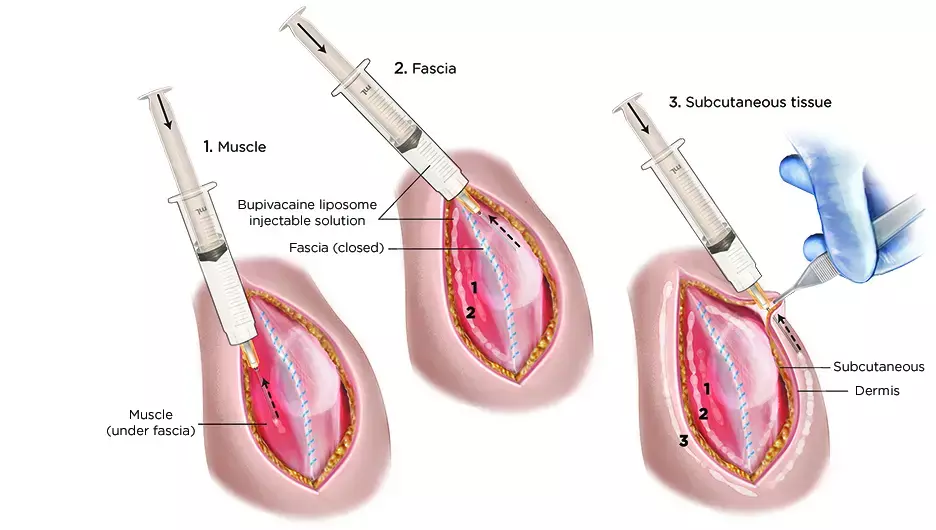- Home
- Medical news & Guidelines
- Anesthesiology
- Cardiology and CTVS
- Critical Care
- Dentistry
- Dermatology
- Diabetes and Endocrinology
- ENT
- Gastroenterology
- Medicine
- Nephrology
- Neurology
- Obstretics-Gynaecology
- Oncology
- Ophthalmology
- Orthopaedics
- Pediatrics-Neonatology
- Psychiatry
- Pulmonology
- Radiology
- Surgery
- Urology
- Laboratory Medicine
- Diet
- Nursing
- Paramedical
- Physiotherapy
- Health news
- Fact Check
- Bone Health Fact Check
- Brain Health Fact Check
- Cancer Related Fact Check
- Child Care Fact Check
- Dental and oral health fact check
- Diabetes and metabolic health fact check
- Diet and Nutrition Fact Check
- Eye and ENT Care Fact Check
- Fitness fact check
- Gut health fact check
- Heart health fact check
- Kidney health fact check
- Medical education fact check
- Men's health fact check
- Respiratory fact check
- Skin and hair care fact check
- Vaccine and Immunization fact check
- Women's health fact check
- AYUSH
- State News
- Andaman and Nicobar Islands
- Andhra Pradesh
- Arunachal Pradesh
- Assam
- Bihar
- Chandigarh
- Chattisgarh
- Dadra and Nagar Haveli
- Daman and Diu
- Delhi
- Goa
- Gujarat
- Haryana
- Himachal Pradesh
- Jammu & Kashmir
- Jharkhand
- Karnataka
- Kerala
- Ladakh
- Lakshadweep
- Madhya Pradesh
- Maharashtra
- Manipur
- Meghalaya
- Mizoram
- Nagaland
- Odisha
- Puducherry
- Punjab
- Rajasthan
- Sikkim
- Tamil Nadu
- Telangana
- Tripura
- Uttar Pradesh
- Uttrakhand
- West Bengal
- Medical Education
- Industry
Single Infiltration of wound with bupivacaine and adrenaline during cesarean reduces Postoperative pain: JAMA

A new study conducted by Gali Garmi and team shows that during a cesarean birth, wound infiltration with a single dose of bupivacaine and adrenaline decreased postoperative pain and opioid usage and may have increased mother satisfaction with pain control.
The findings of this study were published in the Journal of American Medical Association.
After a cesarean birth, the majority of women suffer moderate to severe pain. Uncertainty exists over the effectiveness of surgical wound infiltration with local anesthetic drugs during cesarean birth in reducing postoperative pain. In order to reduce postoperative discomfort following cesarean birth, this research was done to test the effectiveness of single wound infiltration with bupivacaine and adrenaline.
Between January 25, 2018, and May 30, 2020, this randomized clinical study was carried out in an Israeli university teaching hospital in Afula. A total of 288 singleton pregnant women who were scheduled for planned cesarean deliveries at term were randomly assigned to either get single wound infiltration with bupivacaine and adrenaline (intervention group) or not at all (control group) during cesarean deliveries. Before the incision was closed in the intervention group, the subcutaneous layer was infiltrated on both sides of the wound with a solution of bupivacaine and adrenaline. The groups shared comparable perioperative procedures in other areas. A visual analog scale (VAS) score ranging from 0 to 10 was used to measure mean pain intensity over the course of 24 hours following surgery as the primary outcome.
The key findings of this study were:
1. 143 women from a group of 288 were randomly assigned to the intervention group, and 145 to the control group.
2. The obstetric and demographic characteristics were comparable between the groups.
3. When compared to the control group, the primary outcome (VAS pain score) was considerably lower in the intervention group.
4. Compared to 22 women (15.2%) in the control group, 11 women (7.7%) in the intervention group had a VAS score greater than 4 at 2 hours.
5. Additionally, the intervention group reported considerably decreased postpartum usage of rescue opioid analgesics and higher satisfaction with pain management compared to the control group.
6. The duration of the procedure, scar problems (infection, hematoma, or separation), and duration of stay were comparable between the intervention and control groups.
In conclusion, this method may be regarded as standard analgesic therapy among women having a cesarean birth because of its effectiveness and safety. The mother-child bond is not harmed, and the approach is also rather simple to use. This method may be especially helpful for patients who do not receive intrathecal opioids or who are under general anesthesia for any reason.
Reference:
Garmi, G., Parasol, M., Zafran, N., Rudin, M., Romano, S., & Salim, R. (2022). Efficacy of Single Wound Infiltration With Bupivacaine and Adrenaline During Cesarean Delivery for Reduction of Postoperative Pain. In JAMA Network Open (Vol. 5, Issue 11, p. e2242203). American Medical Association (AMA). https://doi.org/10.1001/jamanetworkopen.2022.42203
Neuroscience Masters graduate
Jacinthlyn Sylvia, a Neuroscience Master's graduate from Chennai has worked extensively in deciphering the neurobiology of cognition and motor control in aging. She also has spread-out exposure to Neurosurgery from her Bachelor’s. She is currently involved in active Neuro-Oncology research. She is an upcoming neuroscientist with a fiery passion for writing. Her news cover at Medical Dialogues feature recent discoveries and updates from the healthcare and biomedical research fields. She can be reached at editorial@medicaldialogues.in
Dr Kamal Kant Kohli-MBBS, DTCD- a chest specialist with more than 30 years of practice and a flair for writing clinical articles, Dr Kamal Kant Kohli joined Medical Dialogues as a Chief Editor of Medical News. Besides writing articles, as an editor, he proofreads and verifies all the medical content published on Medical Dialogues including those coming from journals, studies,medical conferences,guidelines etc. Email: drkohli@medicaldialogues.in. Contact no. 011-43720751


